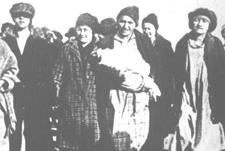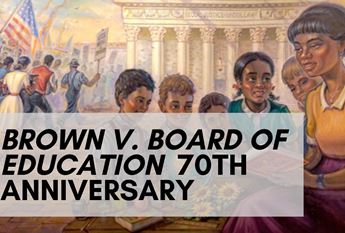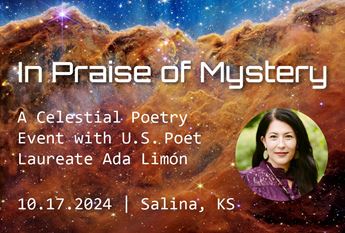

The Amazon Army Marches On
December 2, 2021
A little-known gem of Kansas history became the life’s work of historian Linda O’Nelio Knoll of Pittsburg. A member of the Humanities Kansas Speakers Bureau, Knoll has researched, curated exhibits, written a play, and presented the facts on the “March of the Amazon Army” that took place on three fiercely cold December days in 1921 in Southeast Kansas.
On December 12, Knoll will present a talk on the Amazon Army at the Miners Hall Museum in Franklin, Kansas, the site where the march began 100 years ago to the day. The program was funded by a grant from Humanities Kansas.
“I created a special year-long exhibit at the museum … on the history of coal mining in southeast Kansas,” Knoll says, “depicting the labor unrest that brought national reforms. … Some of the most vivid illustrations of the (nation’s labor) conflict occurred in southeast Kansas between coal miners and the coal companies they worked for.”
The 3,000 to 6,000 women in the ‘army’ marched in support of their striking menfolk.
The region, known as the Little Balkans, was home to immigrants from more than 50 nations, all drawn by the promise of jobs in the mines. At the time, southeast Kansas produced a third of the nation’s coal supply, but conditions were hazardous and the pay was minimal. In 1920, in response to bitter strikes nationwide, the Kansas legislature made strikes illegal by passing the Kansas Industrial Relations Act. But in September 1921, a southeast Kansas strike was called.
As families continued to suffer from the cold and hunger, the women of the area decided to do something about the situation. A few women organized a march to the mines in the area to dissuade any workers from continuing, calling on them to join the strike. What began as a smaller group soon grew to thousands of marchers.
“Reforms such as the eight-hour workday, equal rights for women and minorities, and child labor laws were all fought for in the coalfields of Southeast Kansas,” Knoll says. “In 1921, a commitment to achieving social justice was acted upon by thousands of women who marched …. issues of diversity, immigration, workers’ rights, women’s rights, and the welfare of children are (still in) the news today.”
The march became national news, with many of the larger papers characterizing the group as just a ploy by cowardly miners to grab headlines. But the women had other ideas.
“The march reflected the strength, cohesiveness, and initiative of the women in the mining community,” Knoll says. “The women embraced the ideals of justice and democracy, (and) they considered their cause one of upholding these principles, rather than one of dissent. They issued a statement in the name of ‘the wives of the loyal union men of Kansas’ in which they condemned both the ‘Alien Industrial Slavery Law’ and the international union. Proudly they proclaimed, ‘It is our duty to stand shoulder to shoulder with our husbands in this struggle.’”
“The march reflected the strength, cohesiveness, and initiative of the women in the mining community”
Growing up in the region, Knoll had heard stories of the immigrants and the mines. After reading a poem about the march to her then-88-year-old grandmother, Maggie Bellezza O’Nelio, Knoll was surprised when O’Nelio said, “Why, I was in that march!” Knoll replied, “Why, Nona, you never told me.” To which her grandmother said, smiling, “You never asked.”
Knoll says, “Then, as she dished out the rigatoni, she proceeded to lay out her recollections of the event in fascinating detail.”
This experience prompted her 35-year-plus adventure researching the Amazon Army, named by the New York Times, and the stories connected to the march. Knoll says the aftershocks of the women’s so-called ‘civil disobedience’ had a longer effect on the state.
The Kansas governor ordered troops to the area to ‘preserve the peace’ and break up the march, and deputies arrested 49 women on charges of unlawful assembly, assault, and disturbing the peace, Knoll says. Many, arrested late in the day, had to stay overnight in jail. But the next year, using their newly granted voting powers – the 19th Amendment was signed into law in August 1920 – the women of the region organized again and defeated the state’s governor and the county sheriff.
In 1923, The United States Supreme Court overturned some of the Kansas Industrial Relations Act rulings and stripped it of much of its power. It was disbanded totally by the Kansas legislature in 1925.
Join the Movement of Ideas
Bring Linda O'Nelio Knoll's "The March of the Amazon Army" Speakers Bureau presentation or other women's history topics to your community. Browse speakers and topics.
Visit the Miners Hall Museum in Franklin. The museum is open from 10 a.m. to 4 p.m. Monday through Saturday, admission is free, and exhibits are changed every quarter.
Gallery
 View
View


